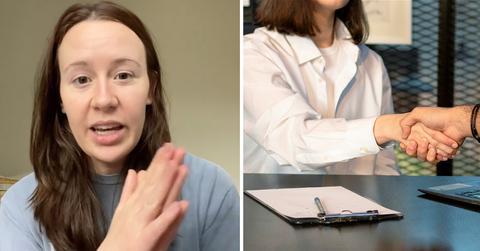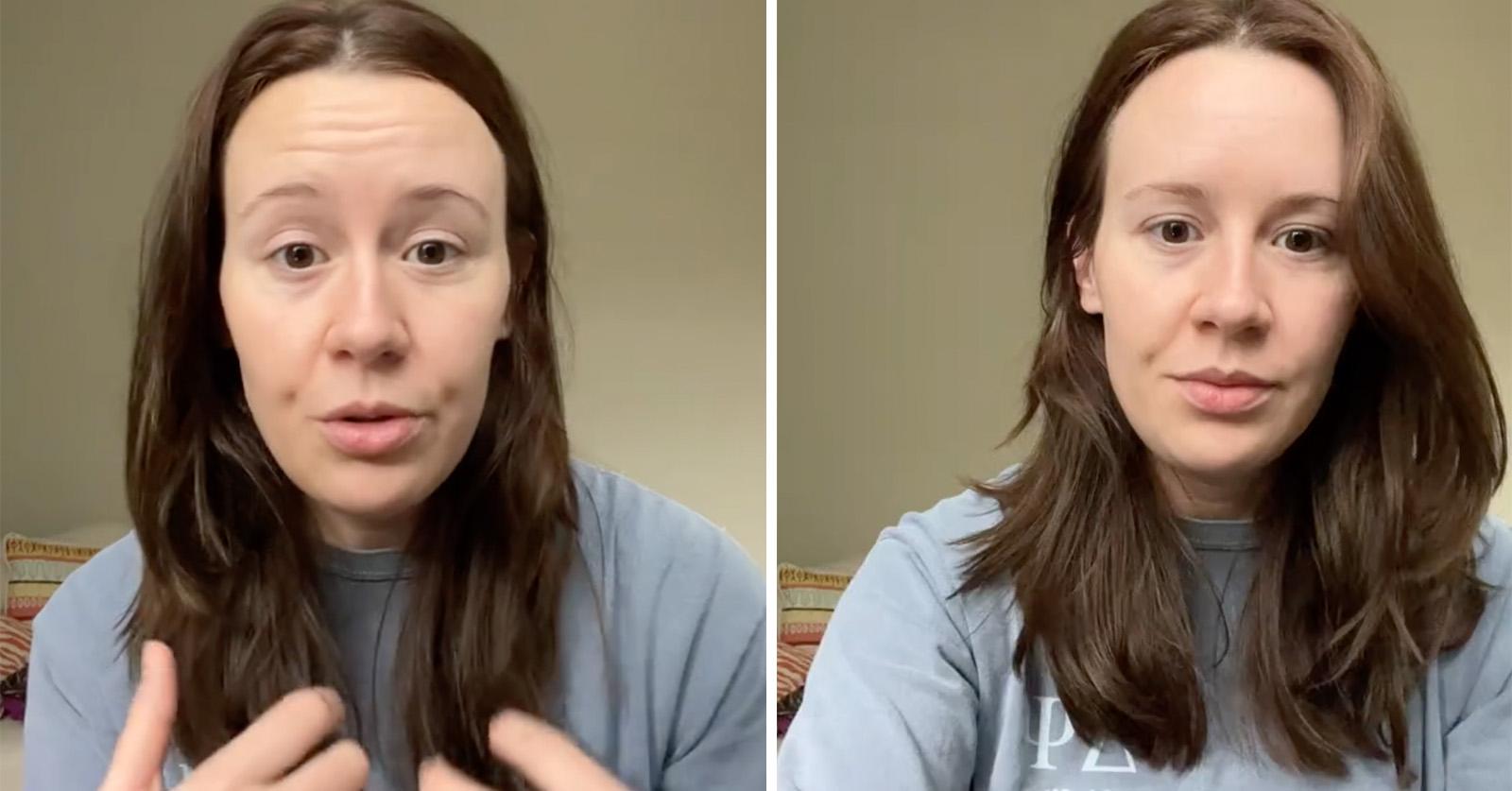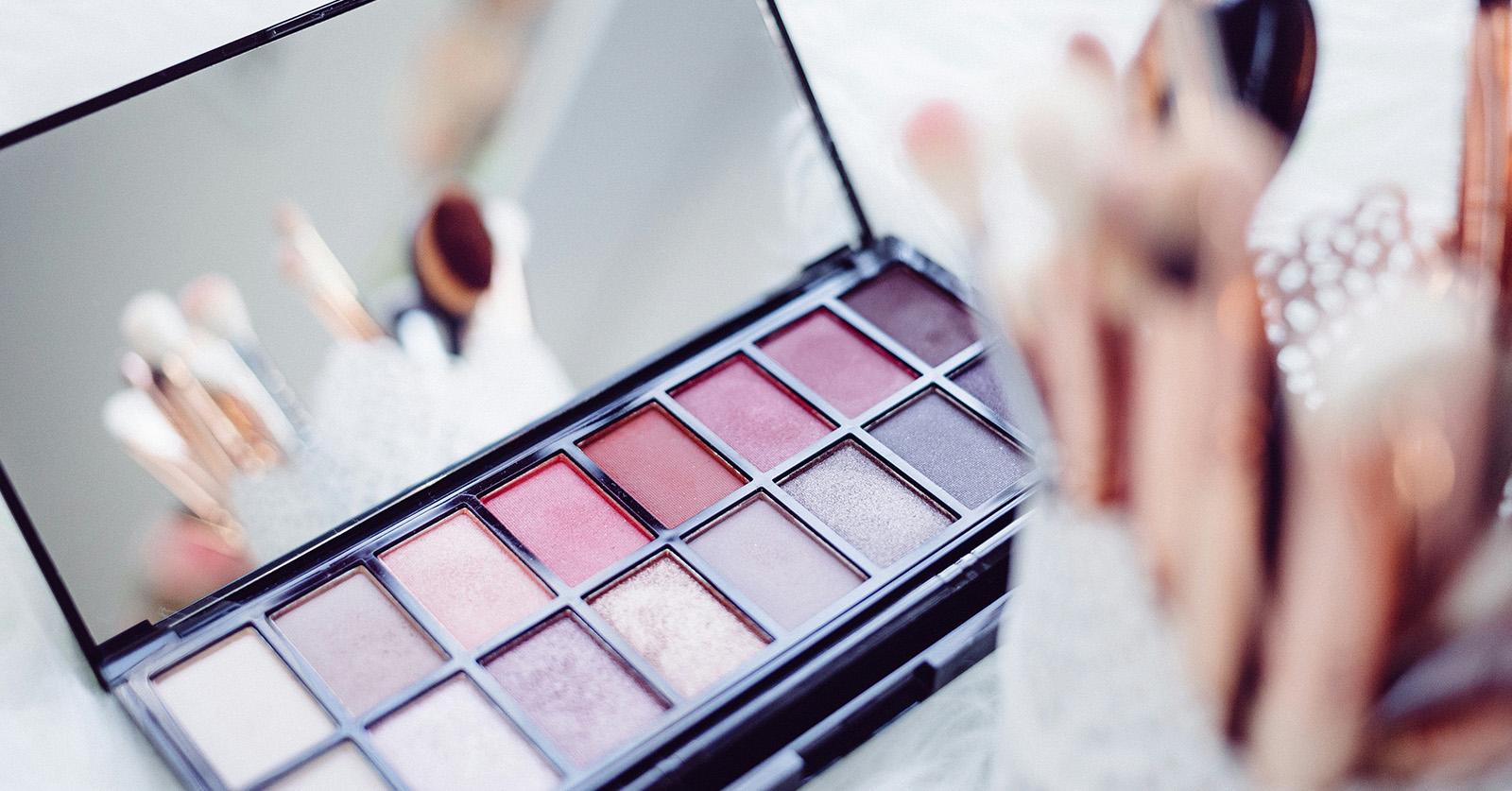"I Was Only Wearing Chapstick" — Woman Was Rejected From a Job After Wearing No Makeup to Interview
"I feel like that's gender-based discrimination and you could sue," one of Melissa's viewers stated.
Published May 6 2024, 1:43 p.m. ET

In today's corporate landscape, landing a job is, in many ways, more difficult than ever before. Even scoring an interview to a job you're interested in can be a mountainous achievement. That's why, when you finally are offered an interview, most candidates do whatever they can to prepare: reviewing sample questions, sprucing up their resumes, practicing their speaking skills, and more.
But what about when your personal appearance comes into play?
In a viral TikTok video, one user named Melissa shared her experience being rejected from a job after wearing no makeup to the interview — even though she was perfectly qualified for the position. After that, Melissa posed a question to her viewers: Does wearing makeup to work make a difference? Here's what the internet had to say about her situation and what is largely being deemed corporate sexism.

Melissa was rejected from a job after wearing no makeup to the interview.
TikTok user Melissa Weaver took to the platform to share her frustration and ask for viewers' opinions after being rejected from a job. In the minute-long video, she shared that she had interviewed for a position earlier in the week, and the interview went "so well."
"Every question she had, I had a great answer for," she said. "I used to work in recruitment — I know how to interview. My background and experience aligned perfectly with what the role entails."
However, after nailing the interview, Melissa received an email from the recruiter stating that she would not be moving on in the process.
In the recruiter's feedback, she confirmed Melissa's feelings that she was a perfect fit for the role: "She said that, while my background was exactly what they were looking for, my experience lined up with what they need for the position, and my own personal goals and values aligned with the company's, she was concerned that, for my interview, I hadn't put in enough effort in my appearance given the level of role I was interviewing for," which was a vice president role within the company.

Now, of course, looking put-together is an important part of interviewing and can definitely indicate how seriously you're going to take a role. For example, wearing attire that matches the professionalism of the job and practicing good hygiene are things expected of any candidate regardless of sex, race, age, etc.
However, Melissa explains that she had, in fact, put a lot of effort into her appearance that day. "I had done a blowout for my hair, I had on a nice top, a blazer, some earrings... but I only had on chapstick," she explained.
"So," she continued, "my question is, does not wearing makeup — for women — to job interviews or to jobs make it seem like they aren't putting as much effort or care into their job?"
The internet was quick to call Melissa's experience "gender-based discrimination."
As expected, Melissa's video was flooded with comments calling out the double standard she faced.
"It's wild she said that in an email to you — this would never be said to a man," one user posited.
"Um... that's discrimination... men aren't regarded as less professional for not wearing makeup. That was completely inappropriate," another agreed.
One commenter shared her own experience with the same unfair judgement: "I got a high-stress job and started wearing less makeup. It was mentioned I looked stressed. I started wearing more makeup again, and suddenly I was a high performer again. I was doing the same level of work."
Another viewer shared what the women in her office did to help offset this toxic corporate mindset: "When our company was moving back in office after COVID, my female coworkers and I made a pact to not wear full makeup when we all went back to help set a new 'standard.'"
So, what are your thoughts? Is it completely unfair for recruiters and employers to judge working women based on their makeup — or lack thereof? We definitely think so.